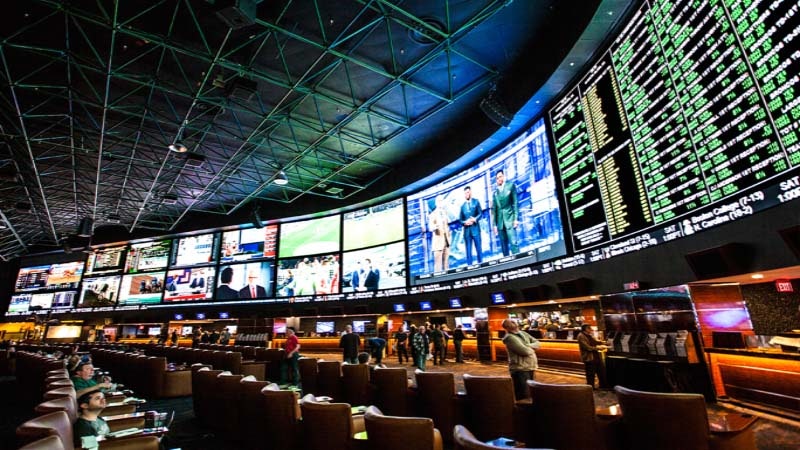In the current landscape of American sports, the once-vibrant cultural fabric that united communities through regional teams and local legends is being irreversibly torn apart. A new era has dawned, driven by an unceasing surge in sports streaming and a voracious sports betting industry, which has recast the very nature of sports fandom into a sterile, transactional phenomenon—content units to be bet on, briefly engaged with, and then forgotten. This evolution doesn't merely represent a shift in consumption patterns; it marks the demise of a cultural pillar that once infused small-town life with meaning.
The era when sports fandom and even participation was embedded in local communities—a real, heartfelt connection surpassing mere entertainment—now feels like a distant memory. These traditional fans and weekend players, once the lifeblood of sports, have become anachronisms in a digital age dominated by app-based viewership and remote betting. The personal connection, the collective passion that once energized small stadiums with an authentic local spirit, has dissolved into a homogenized, global digital stream, leaving individual fans isolated and their enthusiasm diluted.
Here in Southwestern Pennsylvania, where sandlot and semi-professional leagues represented the bedrock of athletic culture during my father’s youth and young manhood, I’ve observed the disintegration of this once-thriving culture. The typical pre-game excitement in local diners, like the beloved Randall’s in my hometown of Perryopolis, has been supplanted by detached conversations on Discord servers about betting odds and fantasy leagues. This shift from communal celebration to isolated engagement, where screens replace the communal stadium experience and betting apps become the gateways to involvement, is not just a change in how games are viewed. It's a symptom of the loss of shared experiences and narratives that once defined the fabric of American sports culture.
Sports betting's explosive growth has irreversibly altered the sports landscape. For many, including a number of my male cousins, betting has become more than a pastime; it's a desperate attempt to find excitement in a monotonous and absurd existence. Their “follow-the-sun” journeys through virtual betting on international sports isn’t driven by a genuine interest in the games but by the transient thrill of gambling, the need to keep finding a new sport on which to place bets in their DraftKings and FanDuel apps. This constant betting, far from a harmless diversion, has become a necessary escape from the pervasive ennui and anomie of modern life, often leading to financial distress and personal turmoil—especially as the marketing wings of these betting apps, which already accept all major credit cards, prepare to roll out their own installment plans and lines of credit for at-risk consumers with spottier payment records.
The transformation wrought by sports betting and streaming signifies more than a shift in entertainment; it mirrors a deeper societal alienation. The modern sports environment caters to gamblers and streamers rather than to traditional fans, who are a more endangered species than the ever-imperiled spotted owl. College athletics, for example, once rooted in small-scale regional rivalries like Pitt and WVU’s “Backyard Brawl,” now finds itself reconfigured to suit national betting markets and streaming content requirements. Games are no longer sporting events that serve some social function, however modest or parochial; they’re content units, integral to the earnings of the fat cats who run the gambling and streaming industries. This transformation isn’t limited to major sports but extends to lesser-known ones, with fans like myself exploring sumo wrestling or judo as alternatives to the commercialized mainstream sports.
The communal connections once cultivated in the stands during some college rivalry game lost to broadcast-driven conference realignments are eroding. This has created a void now filled by solitary gambling, basement “gooning,” and other forms of lackluster entertainment that do little more than pass the time for a doomed generation of grown-up boys that finds itself in possession of nothing save all the time in the world. The challenge here extends beyond preserving the legacy of sports; it's about acknowledging the irreversible societal changes this transformation has wrought. The question of reconciling the commercial drivers of the sports industry—always the main event, to be sure, but these dollars have made greater sense with each passing season—with evanescing cultural and communal values seems rhetorical in this new reality.
The inevitable march towards a digital, globalized sports landscape appears unstoppable, leaving us to ponder the legacy we're creating for future generations—a legacy that will likely include a final redefinition of the role of sports in our society. Once a forum for athletes seeking to demonstrate excellence in front of their peers, these games are now merely an opportunity for mercenaries to demonstrate performance-enhanced and highly-specialized skills to an audience of distracted bettors whose own temporary well-being depends on the coin-flip outcomes of these professional quarrels. Fortunes rise and fall in multiple open windows on the screen, while the bettor’s true attention is focused on whatever oddball pornography is needed to pop the half-chub that justifies a few empty hours of “edging” and “gooning” that passes for intimacy in the disaffected, dissipated “young man’s world” of 2023.
In this context, the prospect of restoring the once-rich heritage of regional sports fandom seems a futile endeavor against the overwhelming tide of digital and commercial forces. The conquest of a society grappling for meaning—now hopelessly ensnared in a world wide web of gambling, content streaming, and “gooning”—emerges not as a possibility but as a fait accompli. The landscape of American sports, and consequently American society, stands at the precipice of a profound transformation, one that seems to have already decided its course, leaving little room for the black-and-white or technicolor nostalgia of a bygone era of sports culture. Place your bets and enjoy this last ride, but don’t blink or avert your eyes—it’ll be over before you know it. And when it is, it’ll be hard to imagine it ever happened at all.

